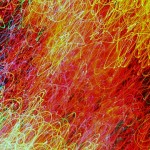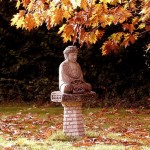2012
 Recently, the issue of student debt has once again come back to the forefront of public discourse. The New York Times did a fairly lengthy cover story on it. A chorus of commentators, including notable critic Mark Cuban, a media and tech mogul, has been even more vocal in comparing higher education to the last housing bubble. In some ways, this debate has been smoldering for the past 3 years about the true value of higher education. [...]
Recently, the issue of student debt has once again come back to the forefront of public discourse. The New York Times did a fairly lengthy cover story on it. A chorus of commentators, including notable critic Mark Cuban, a media and tech mogul, has been even more vocal in comparing higher education to the last housing bubble. In some ways, this debate has been smoldering for the past 3 years about the true value of higher education. [...]
 Recently, UC Berkeley Professor George Lakoff and I had a riveting discussion during his office hours. When he described his second book co-authored with Mark Johnson, what immediately came to mind was karma.[1]
Philosophy in the Flesh asserts that sensory perception is experienced through the mediation of neural connections that conceptualize and reason metaphorically. [...]
Recently, UC Berkeley Professor George Lakoff and I had a riveting discussion during his office hours. When he described his second book co-authored with Mark Johnson, what immediately came to mind was karma.[1]
Philosophy in the Flesh asserts that sensory perception is experienced through the mediation of neural connections that conceptualize and reason metaphorically. [...]
 A couple weeks ago, my friend Jesse’s piece entitled “Strangers” won the 2012 Ippy Award for Best Photo Essay. He’s been working as an independent photojournalist for a number of years, having contributed to a number of publications, including Buddhadharma.... Jesse recently finished another photo essay entitled “Ordinary Zen,” shown below. The essay features an intimate look at four Zen practitioners, through their own words and Jesse’s photos [...]
A couple weeks ago, my friend Jesse’s piece entitled “Strangers” won the 2012 Ippy Award for Best Photo Essay. He’s been working as an independent photojournalist for a number of years, having contributed to a number of publications, including Buddhadharma.... Jesse recently finished another photo essay entitled “Ordinary Zen,” shown below. The essay features an intimate look at four Zen practitioners, through their own words and Jesse’s photos [...]
 For Deleuze, time itself is always in the newness of our immediate experience. Any sense of time that we add to the present experience is a mental construct. But any mental construct is itself experienced in the newness of each moment. So as we realize ourselves foundationally, it’s always within this newness. We are constantly living in a tension created by the immediacy of sense experience and the meaning that we create through various mental constructs. [...]
For Deleuze, time itself is always in the newness of our immediate experience. Any sense of time that we add to the present experience is a mental construct. But any mental construct is itself experienced in the newness of each moment. So as we realize ourselves foundationally, it’s always within this newness. We are constantly living in a tension created by the immediacy of sense experience and the meaning that we create through various mental constructs. [...]
 Work is not something people generally love. But by now, I have become quite a workaholic, especially when working for a monastic community. Working is also a form of dana, a way to keep something precious, the Sangha, alive in our world – a world that really needed it. However, the love for work all too easily becomes a blind and constant need to be productive. In a monastic setting this can result in situations of which one only later realizes the significance and the humor. [...]
Work is not something people generally love. But by now, I have become quite a workaholic, especially when working for a monastic community. Working is also a form of dana, a way to keep something precious, the Sangha, alive in our world – a world that really needed it. However, the love for work all too easily becomes a blind and constant need to be productive. In a monastic setting this can result in situations of which one only later realizes the significance and the humor. [...]
 Freedom – we all want that; we want it dearly. To the point that, in this modern age, our Dutch Constitution (where I’m from) secures many myriad forms of freedom. With that in mind, one cannot be surprised that using our free time is one of the major forms of exercising that freedom. For me, it was my summer vacation – to continue to look for more freedom. [...]
Freedom – we all want that; we want it dearly. To the point that, in this modern age, our Dutch Constitution (where I’m from) secures many myriad forms of freedom. With that in mind, one cannot be surprised that using our free time is one of the major forms of exercising that freedom. For me, it was my summer vacation – to continue to look for more freedom. [...]
 Some years ago, while driving friends to Humboldt State University in the early morning mist, the road began to wind through majestic redwoods enveloped in fog. I was still sleepy and had to pay serious attention in order not to veer into a ditch or a tree. So I kept pointing out the beauty of the forest to my passengers who, with eyes closed, were chanting the name of Guan Yin, the Bodhisattva of Compassion. We arrived safely, in good time and good cheer. Later I asked them why they had kept their eyes closed. “The forest is too beautiful,” was their answer. [...]
Some years ago, while driving friends to Humboldt State University in the early morning mist, the road began to wind through majestic redwoods enveloped in fog. I was still sleepy and had to pay serious attention in order not to veer into a ditch or a tree. So I kept pointing out the beauty of the forest to my passengers who, with eyes closed, were chanting the name of Guan Yin, the Bodhisattva of Compassion. We arrived safely, in good time and good cheer. Later I asked them why they had kept their eyes closed. “The forest is too beautiful,” was their answer. [...]
 We all know how much it can mean to us when someone takes the time to listen. Simply being able to tell your story gives a space and a kind of freedom – it creates trust. If there is one figure in the Mahayana Buddhist tradition that embodies this listening, it is the Bodhisattva of Compassion, Avalokiteshvara. [...]
We all know how much it can mean to us when someone takes the time to listen. Simply being able to tell your story gives a space and a kind of freedom – it creates trust. If there is one figure in the Mahayana Buddhist tradition that embodies this listening, it is the Bodhisattva of Compassion, Avalokiteshvara. [...]
